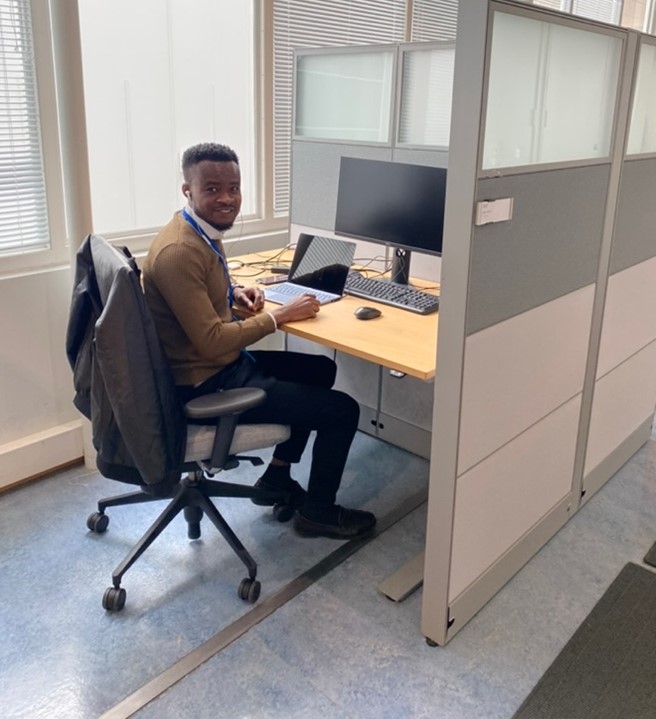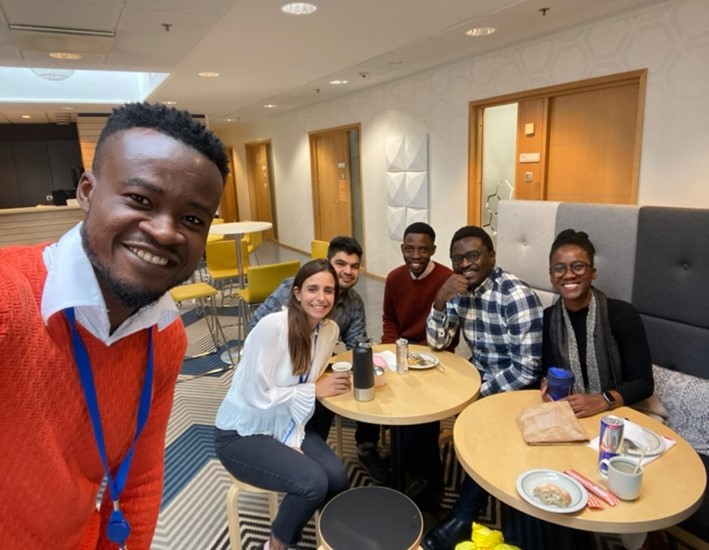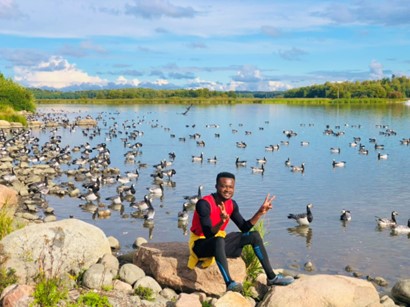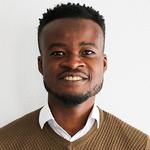Blog
Along the PhD path
A change in environment for a new perspective
After two years of COVID-19 restrictions, I was thrilled to receive an acceptance letter to UNU-WIDER's Visiting PhD Fellowship Programme. Until this point, most of my studies had been conducted online, so a change in environment seemed like a promising way to motivate me to push through my dissertation. That’s exactly what happened during my three months in Helsinki.

My PhD project explores the efficient use of residential rooftop solar panel systems in urban planning in Ghana. The research is motivated by the realization that while solar photovoltaics (PV) systems are now widely economically viable, their expansion depends on the extent to which they can be integrated into the built environment.
I was excited to come to UNU-WIDER, as my research topic requires robust statistical analysis such as multi-linear regressions, which many of the WIDER experts are knowledgeable about. It was also great to see how well my research aligns with UNU-WIDER’s research domain on transforming economies, particularly the African Cities Research Consortium project, as the research not only draws the connections between urban form and residential rooftop solar PV, but also examines the implications for a capital subsidy programme that the Ghana government is rolling out to boost residential solar PV uptake.
New environment, new perspectives, and new energy
The UNU-WIDER premises provide an excellent environment for research. Conveniently located along the port of Helsinki, the office overlooks the South Harbor bay with the Helsinki Market Square and iconic Allas Sea Pool in the same vicinity. A walk with my colleagues during lunch breaks served as a good antidote for blank page syndrome so I could return to my desk with a fresh perspective.
UNU-WIDER team members were approachable and curious about my research. These interactions allowed me to discuss my research and gain insights from experts at the institute.
As my primary field of study is not economics, interacting with the many senior-level economists was a great learning opportunity for me, especially through the weekly WIDER Seminar Series that introduced me to many new concepts, methodologies, and research. Several visiting researchers came to present their work on a wide range of topics spanning climate justice in Indonesia to recycling behavior of urban households in Peru, and raw material footprints in Africa.

I later had the opportunity to present my research paper. This paper (also a chapter in my PhD project) examined the association between urban form and the potential electricity yield from residential rooftop solar PV systems and its associated levelized cost of electricity among high-, middle-, and low-income neighborhoods in Ghana. And the feedback I received during the seminar presentation helped improve the paper —which has now been published in the Energy for Sustainable Development journal.
The fellowship at WIDER has, thus, not only enabled me to complete some chapters of my dissertation but also gave me the opportunity to fulfill an important requirement (a peer-reviewed journal publication) for graduating from my PhD programme.

New connections and awesome friendships
Recounting my experience during the fellowship would be incomplete without mentioning the amazing group of fellows that I met. It didn’t take long for us to move from being colleagues to becoming close friends. We helped each other out with research work, shared lunch, and always supported each other. Their warm hearts and bright smiles were all that I needed to get through the cold temperatures and notorious lack of sunlight of a Finnish winter during our September–November fellowship.
With a strong sense of camaraderie, even the freezing temperatures could not stop us from exploring Finland and neighboring countries, or going for a run along the Vanhankaupunginkoski riverside nature reserve. Together we traveled to Tallinn (Estonia), Riga (Latvia), and Vilnius (Lithuania). The fellowship was more than just an academic exercise; I have made new friends and connections for my professional growth.
Overall, the fellowship gave me a new environment, fresh perspectives, and new energy which helped me to complete two chapters of my dissertation during my stay at UNU-WIDER. I highly encourage all qualified PhD students to apply for this fellowship. Yes, autumn in Finland can be freezing and quite dark, but trust me it’s worth it!
Mark Akrofi is a PhD candidate in Sustainability Science at the United Nations University Institute for the Advanced Study of Sustainability, Tokyo, Japan.
The views expressed in this piece are those of the authors, and do not necessarily reflect the views of the Institute or the United Nations University, nor the programme/project donors.
 Join the network
Join the network


